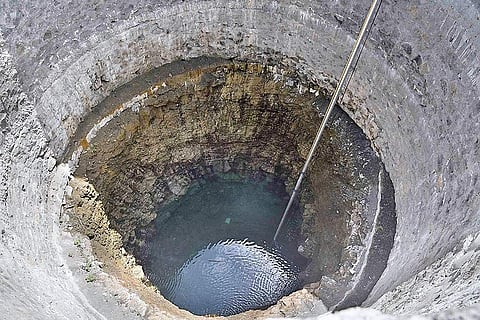

The drilling of borewells is going unchecked across Bengaluru despite having a special team tracking this activity. There are numerous complaints of borewells being dug without authorisation, especially on the city’s outskirts, where water supply from the Cauvery is still a pipe dream. What makes a borewell illegal? Drilling without permission from the authorities can render it illegal—the Bengaluru Water Supply and Sewerage Board (BWSSB) gives the nod for small residential plots and the Karnataka Ground Water Authority for highrises and commercial buildings. The fee is negligible but the process is bound in red tape. The permission is an exercise to check rampant drilling and overexploitation of depleting groundwater. The authorities started cracking down after the digging of borewells to sell groundwater in tankers became a big business, leading to the water table drying up. The commercialisation of groundwater could not be stopped as there were no laws governing its use and sale. Now, with some rules in place, the Groundwater Directorate has directed officials to take immediate penal action against offenders. Teams have been directed to keep watch on construction sites where borewells are a necessity.
The uncontrolled use of groundwater is a fallout of cities becoming gargantuan without the requisite infrastructure. The mushrooming of housing complexes, apartments and businesses in the city and its periphery is pushing up the demand for water. Bengaluru requires almost 2,700 million litres of water per day (MLD), though the BWSSB supplies only about 1,400 MLD; the deficit is bridged by borewells. In some areas, borewells are dug 1,700 feet deep, though water is commonly available in aquifers 100 feet below the surface. With the shadow of drought hanging over Karnataka and a failed monsoon leading to low water levels in dams, cities will rely on groundwater more than ever in the coming year.
In the long run, it is our aquifers that are getting depleted. For groundwater to be a sustainable source, lakes will have to be recharged and green spaces maintained. Urban authorities must plan for ‘sponge cities’ with wetlands to collect the rain runoff, which can revive the aquifers. With climate change now a reality, ecological experts should come up with multiple solutions to ensure that rainwater is effectively harvested and dependence on groundwater is reduced.